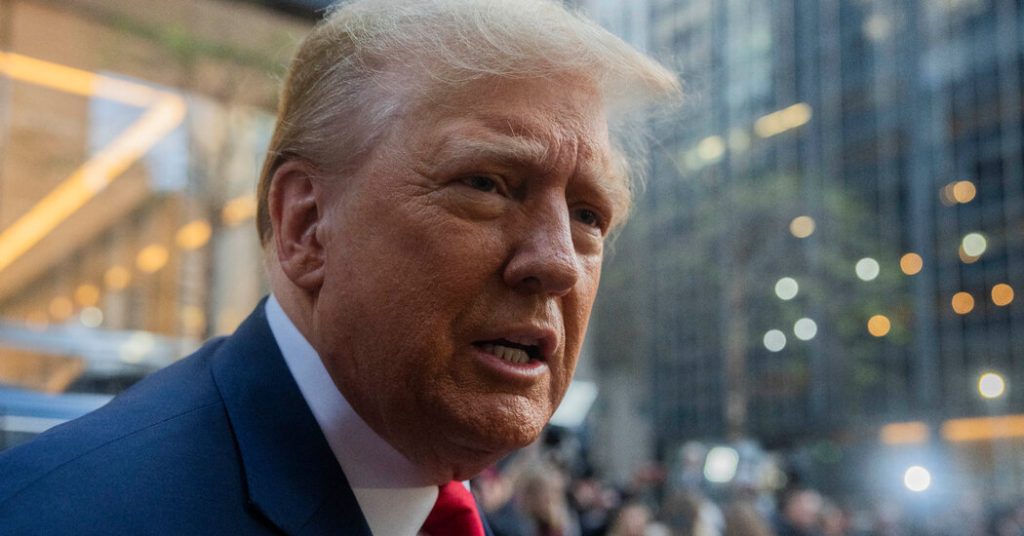At Donald J. Trump’s Manhattan criminal trial, his lawyers have denied that he was involved in any felony charges against him. However, testimony from prosecution witnesses has cast doubt on this claim, highlighting Mr. Trump’s intense focus on matters involving the media and money. The 34 documents central to the prosecution’s case relate to these obsessions. The Manhattan district attorney alleges that Mr. Trump orchestrated the falsification of checks, invoices, and ledger entries to cover up a hush-money payment to Stormy Daniels. Prosecutors aim to convince the jury that Mr. Trump’s management style makes it impossible for him not to have been aware of the cash outflow from his accounts, despite no direct evidence linking him to the scheme.
Key witnesses in the trial, such as former National Enquirer publisher David Pecker, have emphasized Mr. Trump’s micromanaging tendencies and tight control over financial matters. Though no evidence directly implicates Mr. Trump, the testimonies point to his hands-on approach as a businessman. Additionally, insights from former employees suggest that Mr. Trump’s leadership style at the Trump Organization involved close oversight and decision-making even on minor details. The trial has provided a glimpse into Mr. Trump’s character and work habits, raising questions about his involvement in the alleged hush-money scheme.
Former aides and associates of Mr. Trump have shared anecdotes that shed light on his meticulous attention to his business and public image. From overseeing maintenance tasks to reviewing advertising copy, Mr. Trump was described as being deeply involved in various aspects of his enterprises. Former executives have recalled instances where Mr. Trump insisted on certain details, even when they were against regulations or norms. The trial has revealed a side of Mr. Trump that was focused on preserving his brand and maintaining control over the narrative surrounding his businesses and personal ventures.
The trial has featured excerpts from Mr. Trump’s own books, in which he portrayed himself as personally involved in monitoring financial matters and ensuring every dollar counts. The prosecution hopes to draw parallels between Mr. Trump’s stated philosophy of financial prudence and the alleged hush-money payment. Former aides have attested to Mr. Trump’s keen interest in visuals, advertising messages, and public statements, suggesting that he was meticulous in managing his public image and brand perception. The testimonies provide insight into Mr. Trump’s approach to business decisions and his penchant for asserting control over various aspects of his enterprises.
Evidence presented during the trial suggests a culture at the Trump Organization where employees were attuned to Mr. Trump’s desires and would often act to please him without explicit instructions. Former employees recalled instances where they had to directly intervene to prevent Mr. Trump from making decisions that could have legal implications. Despite his lack of expertise in some areas, such as high-rise construction, Mr. Trump was known to assert his preferences on superficial details. The trial has painted a picture of a workplace where Mr. Trump’s influence was pervasive, and employees aimed to anticipate his wishes before being explicitly instructed.
The trial has revealed hints of Mr. Trump’s penchant for micromanaging and inserting himself into situations, particularly when the stakes are high. Anecdotes shared by former aides and executives suggest that Mr. Trump was closely involved in decision-making related to hush-money payments and other sensitive matters. Testimonies have pointed to Mr. Trump’s interest in closely monitoring financial transactions and business dealings, indicating a hands-on approach to managing his enterprises. The prosecution’s case relies on portraying Mr. Trump as not just a distant figurehead but an active participant in key decisions that could impact his reputation and legal standing.


